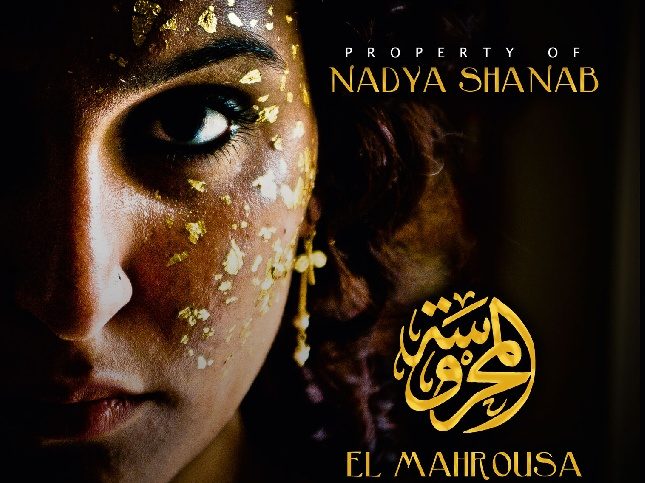The relationship between art and history is both highly monogamous and deceitful at times. Traditional studies of the history of war paint an idealist existence; the victors of struggle demonstrate political dominance by suppressing the voices of the vanquished, diminishing their cause, purposes, and existence all together.
Three years after the end of World War II, Sir Winston Churchill victoriously asserted in the House of Commons, “History will be kind to me, for I intend to write it.” And write it he did, where Churchill’s The Second World War, which began to appear in 1948, painted an untarnished stage for the subsequent presentations of the war years. The world shall always know Britain as the brave nation, which persevered amidst the conflict, essentially paving the way for victory. For his celebrated oratory skills where history was written with his great words, Sir Winston Churchill garnered nothing less than the Nobel Prize in Literature in 1953.
History is no longer written by its winners or its losers. History is written when the esoteric words of change are conceived amongst the struggling masses and are proclaimed to the world.
Great men, and the collective efforts of great peoples, write history, where finally a society is defended by the true expression of art in its countless universal mediums. The lyrical power of music transcends both time and space; the remarkable Beatles singing “Revolution” or Bob Marley advocating peace for the world, otherwise emulate the traditional orators like Sir Winston Churchill. With the availability of open channels of communication via the magnificent opportunity presented by social media, we are able to witness history as it unfolds, told by the voices of the great peoples and the true instigators of change. Music survives today as the voice of change. As our modern history unfolds in a year of unprecedented change, we witness the rise of Egyptian born artist NadyaShanab.
Growing up in Cairo in both the urban Nasr City and Heliopolis, Nadya expressed her interest in music since her younger days. Upon completing her school years, she enrolled at The American University of Cairo, taking the road ‘much preferred’ by her peers. Studying Mathematics and Sociology as a double major for two years, she boldly abandoned her studies when the opportunity to study music at The Liverpool Institute for Performing Arts (LIPA) arose. Her passion for music was affirmed by the support of her family, “My immediate family has always been very supportive of my intent to pursue an education in music and have a career in the music industry.
My father’s side of the family was initially more reserved on the matter. “ She states. “A woman I owe a lot to is NawalKamel – without her I wouldn’t have been able to travel to Liverpool to study for my degree in the first place since she was the one that offered me a financial loan to fund my studies.”
Were it not for this fortunate turning point, NadyaShanab would not have been inspired to return to her homeland where change is slowly being written by the resolve of a great people. Soon to release her debut album in Egypt under her record label, HamzetWasl, El Mahrousais a musical gem that pays tribute to events in the Middle East. In this exclusive feature, bazaar interviews the inspirational NadyaShanab, who has effectively halted her stable life in England to return back to the homeland in an effort to take part in changing her society.
How did your musical journey begin?
At school I was always involved in music-related activities, like choir, musical productions and school bands. Once I left school I formed a band with a few friends and we would hold practices once a week playing covers we all liked. We had a few disagreements here and there and before we knew it we decided to split. During my second year at AUC I met two guys and along with one of the members of the previous band, we decided to form ‘Like Jelly’ a laid back acoustic folk band. A few months later I was moving to Liverpool to study at LIPA for my BA (HONS) degree in Music.
How did the name, “Property of NadyaShanab” come about?
The band name came about because I was always referring to musicians who played with me as ‘mine’ – my drummer, my guitarist etc. I thought it would be a funny name and preferred it over just using my name.
What/Who inspires you to write your music and lyrics?
Many things inspire me. Things I feel passionate and strongly about move me enough to write. When I first started writing it was often about love and being hurt, then I began to discover other important issues in the world around me that I felt needed to be addressed like with the song “Ana BintMasreyaSoghayara” (I am a young Egyptian Girl) which discusses the topic of female genital mutilation.
Is the final sound of a musical track an individual or group effort?
It depends! Some songs I know exactly what I want played on them in terms of other instruments. Others less so, in that case I bring my guitar to the band rehearsals and play what I’ve come up with and ask the band to play what they think will go with the song. If I like what they play we keep it, if I don’t I ask them to find something else. When in the studio though, we will have usually decided on about 95 percent of what is definitely going to be recorded and that last 5 percent is usually messing about with last minute ideas.
Who/What in your early beginnings influenced your music?
When I first started writing ‘proper’ songs on my guitar I was listening to The Cranberries album – No Need To Argue. That influenced me a lot initially. I had mainly listened to western music growing up with the exception of Am rDiab and Aida El Ayoubi. As I got a bit older I started to appreciate Om Kalthoum and Abdel Wahab although you can’t really hear the direct influence. These days I’m more influenced by Dave Matthews Band, SouadMassi and Aida El Ayoubi.
How does it feel to return to Egypt and perform your music, especially after the revolution?
It feels great to be back home. My last months in Liverpool were extremely difficult for me, being on the sidelines watching as Egypt stood up and called out for freedom felt wrong. I wanted to be there amongst my people standing by their side. It took me a while to arrange everything to enable me to move back but I feel like it was the right move. I still haven’t performed in post-revolution Egypt but hopefully that will be soon!
In your opinion, what role does music play in demonstrating, and even instigating change?
I think music is extremely important, as it IS a universal language and a very powerful one, indeed. Music can bring people closer to each other and help people express their emotions and voice their opinions. It can be people’s escape from reality or their wake up call to it! If you take a look at Egypt’s history, big artists were born out of revolutions; Om Kalthoum and Abdel Halim for example.
In you opinion, what was the hardest challenge you faced in your musical career so far?
So far, dealing with Egyptian bureaucracy is proving to be extremely difficult. I’ve been trying to sort out legalities with officially releasing my album for the last 10 months and it’s still not done. It’s very frustrating for me knowing that my album is finished and ready for public consumption and yet it’s been on hold for over 10 months because paperwork is taking forever.
Another challenge I can’t over look is, not being taken seriously as a female musician in Egyptian society and being respected.
Do you feel like you are starting over in Egypt?
Slightly, yes. It has been about three years since I last had a big concert in Egypt. In 2008 two of my UK band members came down and we had a mini tour of Egypt performing at several locations around the country. It was very successful and we managed to create quite a buzz. However, that was three years ago and things change and new artists arise and so I feel like I do need to work to make my mark on the Egyptian audience again.
How did your band members react to your decision to move back to Egypt?
They were all very understanding and supportive. They saw how hard it was for me to be in the UK while the revolution was taking place and thought it was for the best that I head back. They also thought that my music had a place in Egypt and that I should work on that.
How has the Western world reacted to your sound?
I was always very well received in the UK. People would come up to me after performances saying how much they enjoyed our set even though they didn’t speak Arabic and couldn’t understand my Arabic lyrics. As I mentioned before, music is a universal language and people feel the emotions the artist tries to portray through it regardless of whether they can understand the language of the lyrics or not.
During my last year at LIPA, I played one of my tracks to Paul McCartney and he reacted very positively to it!
Do you feel that music should always serve a specific purpose?
It’s nice to write music that carries a message out to the world, especially if you have a large audience. I feel it’s important to use that position and help voice concerns or bring people’s attention to specific issues in the world. But music is also people’s escape from reality; a way to forget about the hardships of life and that is a purpose we shouldn’t forget about!
What are some of your favorite tracks, and why?
I have quite a few.
“Ilham” by SouadMassi – I love its beat and I love the texture of her voice on that track, it always puts me in a good mood. I love the percussion break and violin solo on it, too.
“Don’t Drink The Water” and “The Last Stop” by The Dave Matthews Band – I love how they integrate music from so many different genres and cultures and produce this amazing mish-mash of a sound. I find their music extremely inspiring.
“Ala Bali” By Aida El Ayoubi – The lyrics are lovely!
Do you see yourself also writing about the Middle East as a whole?
Yes, definitely! I have already written a few tracks on my album El Mahrousa that were inspired by events in the Middle East. The track “Ticking Bomb” was written when Israel attacked Lebanon in late 2006 and is also inspired by the Palestinian issue. So is the track “Silence”.
What is your dream performance space and destination?
I would love to perform by the pyramids at a large concert, definitely. However I would also love to play at the main stage of a large UK festival such as Glastonbury. The energy of the crowd would probably make me really emotional but I would love every second of it!
What would you like to accomplish in the future?
I would like to set up my record label branch (HamzetWasl) in Egypt and once I’ve released my debut album, help out other artists within the World Fusion genre. I would like to establish myself as an Egyptian artist within the Middle East and beyond! Then take it from there!
I also have a few educational projects that I would like to carry out in Egypt inspired by my time teaching with the Liverpool Music Support Service.
Will Nadya Shanab visit us in Kuwait?
That would definitely be in my Middle East tour plans!
For more information on Nadya Shanab, check out her facebook fan page by visiting: www.facebook.com/NadyaShanab.








